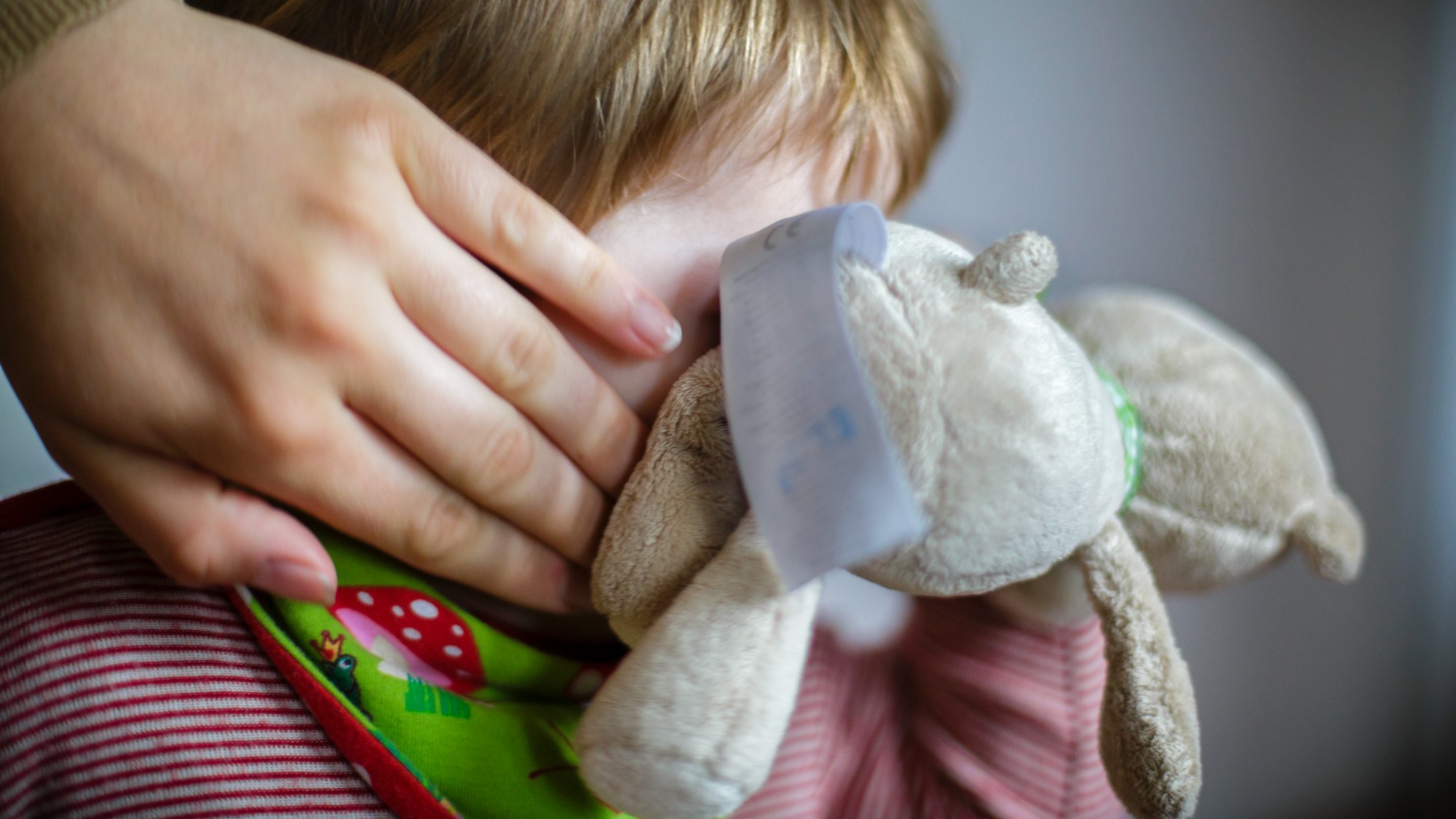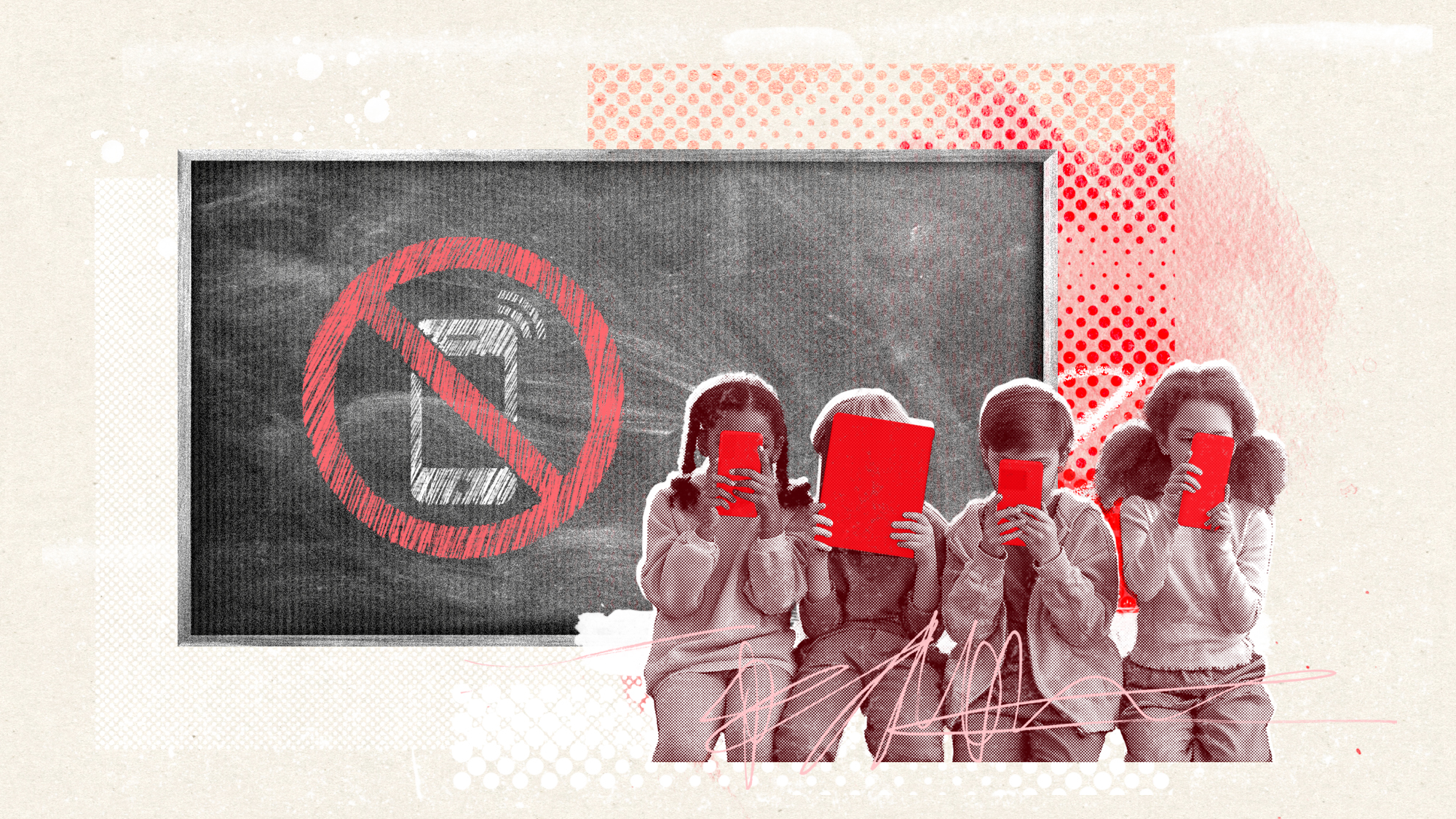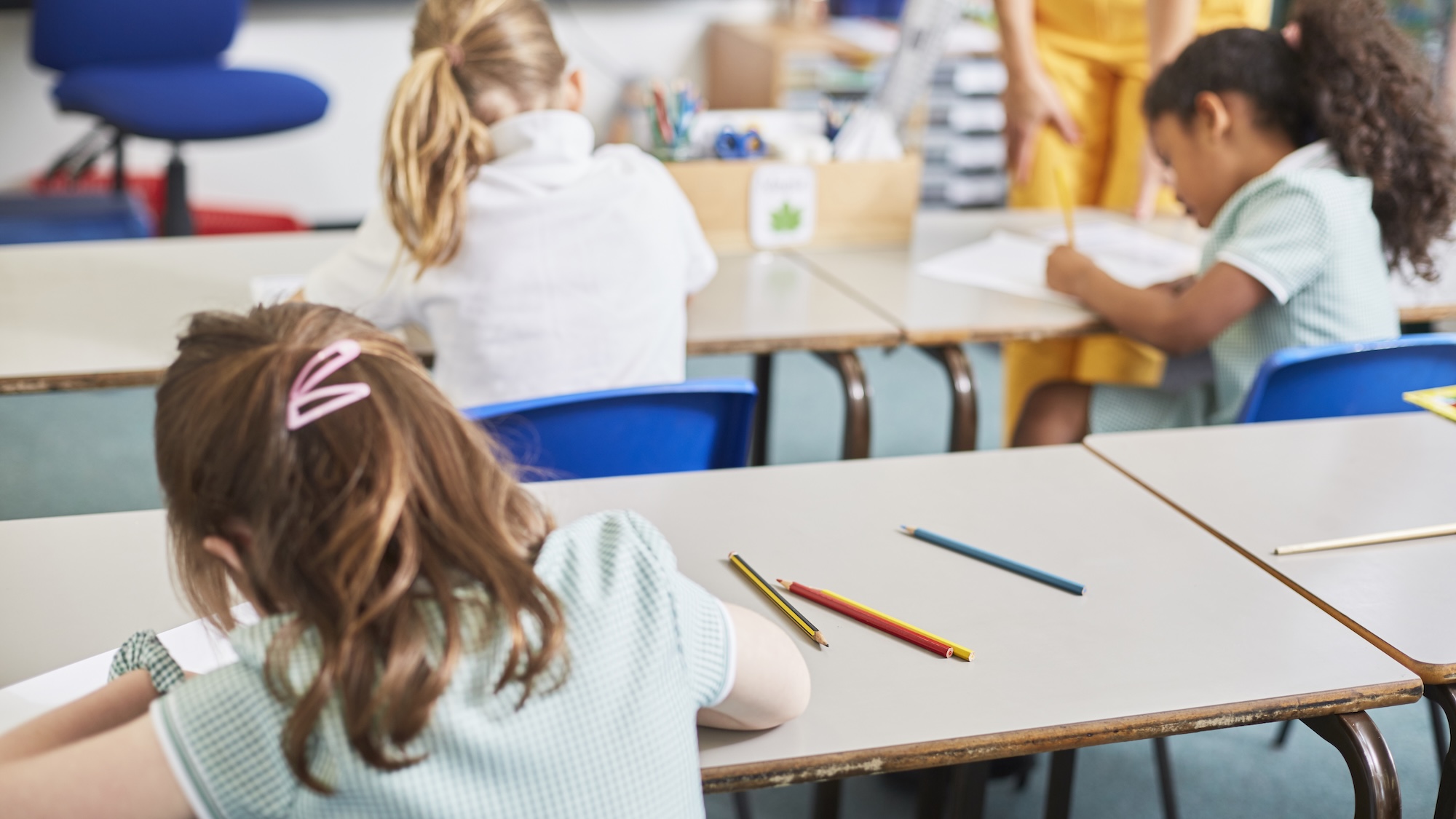Was shutting schools during Covid a mistake?
Former education secretary Gavin Williamson says the ‘consequences for children weren’t properly taken into account’

A free daily email with the biggest news stories of the day – and the best features from TheWeek.com
You are now subscribed
Your newsletter sign-up was successful
The Covid-19 pandemic was one of the greatest disruptions to children’s education in history. Schools around the world closed at the start of the outbreak and, while some quickly reopened, many stayed closed for months. An estimated 95% of the global student population was affected, and now many countries, including Britain, are grappling with the fallout on children’s learning and wellbeing.
In the UK, “many mistakes” were made over school closures, and “the consequences for children weren’t properly taken into account”, said former education secretary Gavin Williamson yesterday. He told the Covid Inquiry, which is currently hearing evidence in its Children & Young People phase, that the then prime minister Boris Johnson “chose the NHS over children”, saying there was no “detailed plan” in place for closing schools before March 2020, despite it becoming clear in February that this would be one of the options for dealing with the pandemic.
What did the commentators say?
“New evidence emerges daily of the toll” Covid school closures took on children – from “premature ageing of adolescent brains, myopia, chronic school absenteeism”, lost learning and a dramatic rise in mental health issues, said Christina Hopkinson in The i Paper.
The Week
Escape your echo chamber. Get the facts behind the news, plus analysis from multiple perspectives.

Sign up for The Week's Free Newsletters
From our morning news briefing to a weekly Good News Newsletter, get the best of The Week delivered directly to your inbox.
From our morning news briefing to a weekly Good News Newsletter, get the best of The Week delivered directly to your inbox.
So did we really have to “lock the school gates to stop the spread of Covid”? Sweden, which kept most schools open, recorded fewer excess deaths than the European average.
The initial decision to close schools was justified, Mark Woolhouse, professor of epidemiology at the University of Edinburgh, told the paper, because of “uncertainties around the Covid risk to children, the risk to staff and the contribution that schools might make to the transmission of the virus”. But it was soon apparent that “there was very little evidence of those three effects from anywhere in the world”. The UK could have done as Denmark did and reopened schools in April 2020.
The effect of school closures on children’s educational attainment won’t be calculable for years, said BBC Future. Children without access to computers or reliable internet connections “inevitably suffered more” but online teaching “didn’t seem to do much to stem the tide of learning loss” anyway. A 2023 review of 42 studies across 15 countries, published in Human Nature Behaviour, estimated that pupils “lost a third of a school year’s worth of learning due to the shutdowns”. A 2023 US report on the long-term effects of this lost learning talks of “lasting economic implications” that could amount to “trillions of dollars” in future lost earnings.
Online schooling broke the social contract between schools and parents “for a lifetime”, disasters expert Lucy Easthope told The Guardian. Even now, schools are dealing with “terrifyingly high levels of school avoidance”.
A free daily email with the biggest news stories of the day – and the best features from TheWeek.com
“The relationship between children and screens changed irrevocably” too, said the paper. The children’s commissioner for England, former headteacher Rachel de Souza, highlighted “the online safety issues” and mental-health effects inherent in asking young people to “move their lessons and social lives online”. The worry now is that young people “do not feel those in power are listening” – evident in the recent “surge of interest online in populism”.
What next?
The picture “isn’t clear cut”, said The i Paper’s Hopkinson. Children in countries where they went to school every day during the pandemic still “had a far from typical” experience. Sweden has not “swerved the mental health crisis gripping teenagers here in Britain” and has its own issues with school absenteeism and excessive screen time.
Even if schools hadn’t closed, the uncertainty and the disruption of the pandemic still affected children’s wellbeing, said The Guardian. Those who were babies in 2020 are “struggling to meet basic developmental milestones”.
“There’s a generation of children who’ve lost faith in the predictability of life, and lost faith in normality remaining the same,” said Anne Longfield, former children's commissioner for England. “It’s an uncertainty that they now live with, and that’s enormous really, isn’t it?”
Harriet Marsden is a senior staff writer and podcast panellist for The Week, covering world news and writing the weekly Global Digest newsletter. Before joining the site in 2023, she was a freelance journalist for seven years, working for The Guardian, The Times and The Independent among others, and regularly appearing on radio shows. In 2021, she was awarded the “journalist-at-large” fellowship by the Local Trust charity, and spent a year travelling independently to some of England’s most deprived areas to write about community activism. She has a master’s in international journalism from City University, and has also worked in Bolivia, Colombia and Spain.
-
 6 of the world’s most accessible destinations
6 of the world’s most accessible destinationsThe Week Recommends Experience all of Berlin, Singapore and Sydney
-
 How the FCC’s ‘equal time’ rule works
How the FCC’s ‘equal time’ rule worksIn the Spotlight The law is at the heart of the Colbert-CBS conflict
-
 What is the endgame in the DHS shutdown?
What is the endgame in the DHS shutdown?Today’s Big Question Democrats want to rein in ICE’s immigration crackdown
-
 England’s ‘dysfunctional’ children’s care system
England’s ‘dysfunctional’ children’s care systemIn the Spotlight A new report reveals that protection of youngsters in care in England is failing in a profit-chasing sector
-
 The pros and cons of banning cellphones in classrooms
The pros and cons of banning cellphones in classroomsPros and cons The devices could be major distractions
-
 School phone bans: Why they're spreading
School phone bans: Why they're spreadingFeature 17 states are imposing all-day phone bans in schools
-
 Schools: The return of a dreaded fitness test
Schools: The return of a dreaded fitness testFeature Donald Trump is bringing the Presidential Fitness Test back to classrooms nationwide
-
 Send reforms: government's battle over special educational needs
Send reforms: government's battle over special educational needsThe Explainer Current system in 'crisis' but parents fear overhaul will leave many young people behind
-
 Education: Can public schools be religious?
Education: Can public schools be religious?Feature A Supreme Court seems ready to rule in favor of religious charter schools in Oklahoma, which could reshape public education
-
 America's academic brain drain has begun
America's academic brain drain has begunIN THE SPOTLIGHT As the Trump administration targets universities and teachers, educators are eying greener academic pastures elsewhere — and other nations are starting to take notice
-
 Schools' Send crisis: how can it be fixed?
Schools' Send crisis: how can it be fixed?Today's Big Question Government urged to reform support for children with special educational needs and disabilities and save councils from bankruptcy